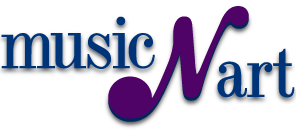
The drums are a collection of drums, cymbals or other percussion instruments arranged in a unique way so that they can be played by any drummer/percussionist. The drummer uses the sticks to play the drums and cause their membranes, also known as drum skins or drumheads, to vibrate and produce sound. Additionally, two pedals are used; one for the bass drum, or kick drum, and one for the hi-hat cymbal used to clash and hold the cymbals together.
One may start learning the drums at about the age of 6 years old. This varies according to the maturity and musical perception a child has developed until that moment. The child’s body type does not matter since the drum sets can be adjusted in different positions to suit the student’s height. As with almost all musical instruments, the lessons start by learning the notes, values and short easy pieces. The students learn how to use gravity, their natural body levers (the arms, wrists and fingers) and how to restore the drums’ membranes to their original position after being struck. Therefore, muscular strength is not a requirement for one to study the drums or become a drummer. All that is needed is a relatively good physical condition, a clear mind, will to study and of course love for drumming.
Common drum sets are used during the drum lessons, in order for the students to learn the right techniques, which is not the case with electronic drum sets. The lesson is adjusted to the students’ needs, combining entertainment with practicality, and providing them an especially pleasant and fascinating learning experience. During the first three months the students are able to play simple rock or pop pieces. Nonetheless, in order to develop the rhythm maturity and dynamics required, it will take a lot more time. By the end of the first year students will be able to play musical pieces by reading partitures, also known as scores (printed form of notes) and their progress solely depends on them. The personal interest, the study hours and their love for the drums are elements that if combined together can turn someone from a beginner drum player to a good drummer in a very short time!!
Drum lessons, as all musical instrument lessons, are conducted on a private basis. That is, the lessons are conducted with the teacher and one student only. The school provides two drum sets, one for the teacher and one for the student, enabling the teacher to give all his/her attention to the student for the best possible results. The duration of the lessons varies according to the level of each student. Since the lessons are private there is flexibility in terms of the day and time a lesson can be arranged. The exact days and hours are jointly agreed upon by the student and the teacher before the beginning of the academic year. As time passes by and as the student progresses, additional hours might be added in a classroom with students of other musical instruments in order to create small orchestras, ultimately aiming to familiarize themselves and coexist with other musical instruments.
The school offers recognized examinations for all of its departments. The majority of the examinations are from foreign universities and schools and especially from the United Kingdom and the Czech Republic. The drums examinations offered by the school are from the ABRSM (Royal School of Music), Greek conservatories and the Trinity College. All diplomas are recognized by the Ministry of Education and Culture as well as by all universities abroad. Therefore, regardless of what musical instrument one plays and the levels completed, the school diplomas can be used as additional qualifications for admission in overseas universities!
There are quite a few drummers that stood out in the last years from various music genres. A drummer though can demonstrate his/her skills mostly through metal, rock and jazz. Some of the most renowned drummers are Neil Peart (Rush), John Bonham (Led Zeppelin) and Chad Smith (Red Hot Chili Peppers).
